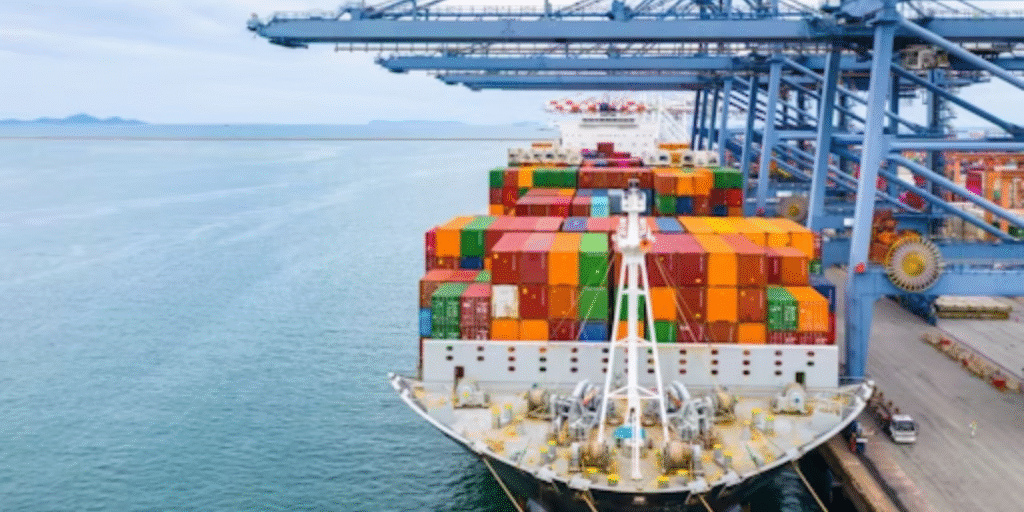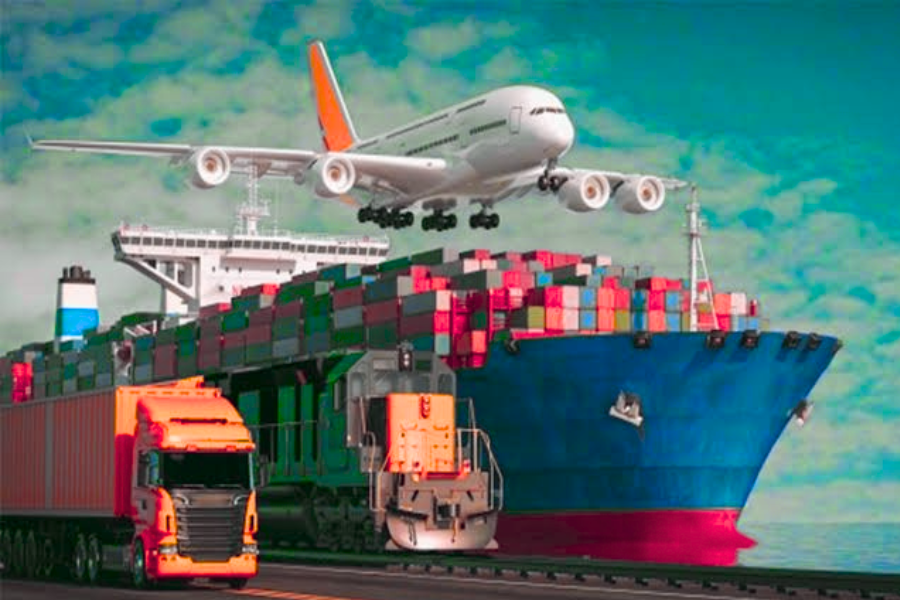Shipping is an essential part of modern business operations, influencing everything from procurement strategies to e-commerce success. With the increasing demand for fast and cost-effective delivery, companies need to stay informed about logistics, freight forwarding, warehousing, and supply chain trends. ProcurementNation .com Shipping serves as a valuable resource, providing insights into procurement news, international trade, and shipping costs. Understanding these aspects can help businesses streamline operations, reduce expenses, and enhance overall efficiency.
The Role of Shipping in Procurement
Procurement is more than just purchasing goods; it involves managing suppliers, negotiating contracts, and ensuring that shipments arrive on time. A well-optimized shipping process is crucial for maintaining a smooth supply chain. Whether dealing with domestic deliveries or international freight, businesses must navigate transportation challenges, fluctuating shipping costs, and warehouse management complexities.

Shipping efficiency directly impacts a company’s bottom line. Delays can disrupt production schedules, while high freight costs can reduce profit margins. Businesses that optimize their logistics operations can improve customer satisfaction, reduce waste, and enhance overall efficiency.
Understanding Logistics and Freight Management
Logistics encompasses the entire process of moving goods from one location to another. This includes freight forwarding, transportation, warehousing, and last-mile delivery. Freight management is a subset of logistics, focusing specifically on the movement of goods via air, sea, road, or rail.
Companies must decide whether to handle logistics internally or outsource to third-party logistics (3PL) providers. Outsourcing can reduce operational burdens and allow businesses to focus on their core functions. However, it is essential to partner with reliable logistics providers to ensure smooth deliveries and cost-effective shipping solutions.
Supply Chain Challenges and Solutions
The global supply chain is constantly evolving, influenced by factors such as geopolitical tensions, economic fluctuations, and technological advancements. Businesses must adapt to changing conditions to maintain a competitive edge.
One significant challenge in supply chain management is the volatility of shipping costs. Fuel prices, port congestion, and labor shortages all contribute to fluctuating freight rates. To mitigate these issues, businesses should explore cost-saving strategies such as optimizing warehouse locations, consolidating shipments, and leveraging digital tracking solutions.
Another challenge is ensuring timely deliveries, especially for e-commerce businesses that rely on fast shipping. Implementing real-time tracking systems, collaborating with reliable carriers, and using automated logistics solutions can help improve delivery times.
E-commerce and Shipping: The Growing Demand for Fast Deliveries
E-commerce has transformed the shipping industry, with consumers expecting fast, reliable, and cost-effective delivery services. Online retailers must balance shipping speed with cost efficiency to remain competitive. Same-day and next-day deliveries have become the norm, putting pressure on logistics providers to optimize their operations.
Companies can enhance their e-commerce shipping strategies by using multiple carriers, offering flexible delivery options, and utilizing fulfillment centers closer to customers. Warehousing solutions such as micro-fulfillment centers and automated sorting systems can further improve efficiency.
International trade also plays a significant role in e-commerce shipping. Businesses that sell products globally must navigate customs regulations, tariffs, and cross-border logistics challenges. Partnering with experienced freight forwarders can help streamline international shipments and reduce transit times.
The Importance of Warehousing in Shipping and Procurement
Warehousing is a critical component of supply chain management, affecting inventory management, order fulfillment, and shipping speed. Efficient warehousing solutions can reduce storage costs and minimize delivery delays.
Many businesses are adopting smart warehousing technologies, including automated picking systems, AI-driven inventory management, and real-time tracking solutions. These innovations help companies optimize storage space, improve accuracy, and enhance overall efficiency.
Additionally, warehousing strategies such as cross-docking and just-in-time inventory management can help reduce holding costs and improve order fulfillment speed. Businesses that invest in modern warehousing solutions can achieve greater operational efficiency and better customer satisfaction.
How Shipping Costs Impact Business Operations
Shipping costs can significantly impact a company’s profitability. High freight rates, fuel surcharges, and import/export duties can add up, making it essential for businesses to find ways to reduce transportation expenses.
One effective way to cut shipping costs is by negotiating bulk shipping discounts with carriers. Businesses that ship large volumes can leverage their purchasing power to secure better rates. Another strategy is to optimize packaging to reduce dimensional weight charges and minimize excess space in shipments.
Using freight consolidation services can also help businesses save on transportation costs. By combining multiple shipments into a single freight load, companies can reduce per-unit shipping expenses and improve overall efficiency.
Freight Forwarding: The Backbone of International Trade
Freight forwarding plays a crucial role in international trade, helping businesses navigate complex shipping regulations, customs procedures, and global supply chain challenges. Freight forwarders act as intermediaries between shippers and carriers, ensuring that goods are transported efficiently and cost-effectively.
Businesses that engage in global trade must choose the right freight forwarding partners to handle their shipments. Factors to consider include experience, reliability, and the ability to provide end-to-end logistics solutions. A well-managed freight forwarding strategy can help businesses streamline international shipping operations and minimize disruptions.
Sustainable Shipping: The Future of Logistics
Sustainability is becoming a priority in the logistics industry, with businesses seeking eco-friendly shipping solutions to reduce their carbon footprint. Green logistics initiatives include using electric vehicles for last-mile delivery, optimizing shipping routes to reduce fuel consumption, and adopting biodegradable packaging materials.
Many companies are also exploring carbon offset programs to balance their emissions. Sustainable shipping not only benefits the environment but also enhances brand reputation and customer loyalty. Businesses that invest in green logistics can achieve long-term cost savings and improve their corporate social responsibility efforts.
The Role of Procurement News in Staying Informed
Staying updated on procurement news is essential for businesses looking to optimize their supply chain operations. ProcurementNation.com provides insights into industry trends, regulatory changes, and technological advancements in logistics and shipping.
Businesses that stay informed can make data-driven decisions, anticipate market shifts, and implement best practices to improve their procurement processes. Keeping track of procurement news also helps businesses stay ahead of competitors and adapt to evolving industry demands.
The Future of Shipping and Logistics
The shipping industry is constantly evolving, driven by technological advancements and changing consumer expectations. Innovations such as AI-powered logistics platforms, autonomous delivery vehicles, and blockchain-based supply chain management solutions are transforming the way businesses handle shipping and procurement.
Companies that embrace digital transformation can gain a competitive edge by improving efficiency, reducing costs, and enhancing overall supply chain visibility. The future of shipping lies in automation, real-time tracking, and data-driven decision-making.
Learn more about: New Bobcat Skid Steer Price: Everything You Need to Know
Conclusion
Shipping and logistics are fundamental to procurement, impacting everything from freight costs to supply chain efficiency. ProcurementNation .com Shipping offers valuable insights into the latest trends, helping businesses streamline their operations and make informed decisions. By optimizing transportation strategies, adopting smart warehousing solutions, and staying updated on procurement news, companies can enhance their efficiency, reduce costs, and improve delivery timelines. As the logistics industry evolves, leveraging technology and sustainable shipping practices will be key to staying ahead in the competitive market.
FAQs
1. What is ProcurementNation .com Shipping?
ProcurementNation .com Shipping refers to the insights, news, and updates related to logistics, freight, and supply chain management provided by ProcurementNation.com. It helps businesses stay informed about industry trends and shipping strategies.
2. How can businesses reduce shipping costs?
Businesses can reduce shipping costs by negotiating better freight rates, using consolidated shipping, optimizing packaging, and leveraging technology for real-time tracking and logistics automation.
3. Why is warehousing important in shipping?
Warehousing helps businesses store, manage, and distribute products efficiently. Smart warehousing solutions improve order fulfillment speed, reduce storage costs, and enhance supply chain operations.
4. How does sustainable shipping benefit businesses?
Sustainable shipping reduces carbon footprints, lowers operational costs, and improves brand reputation. Businesses can achieve sustainability through eco-friendly packaging, optimized delivery routes, and energy-efficient transportation methods.
5. What role does freight forwarding play in international trade?
Freight forwarding ensures smooth cross-border transportation by managing customs, documentation, and carrier coordination. It helps businesses navigate complex shipping regulations and streamline global logistics.
